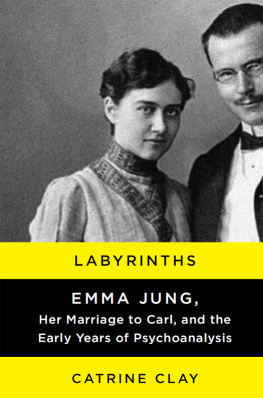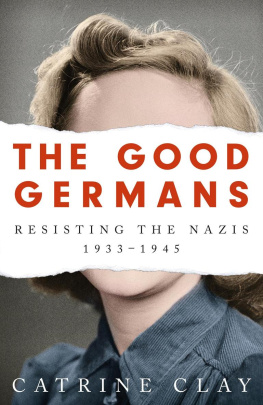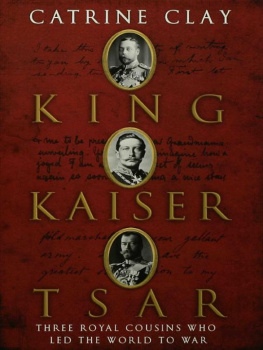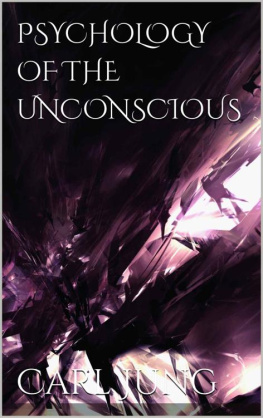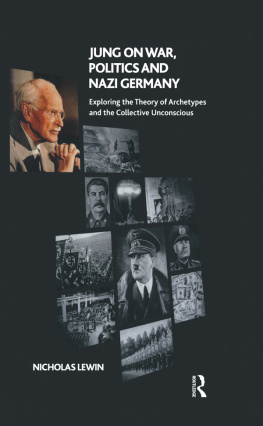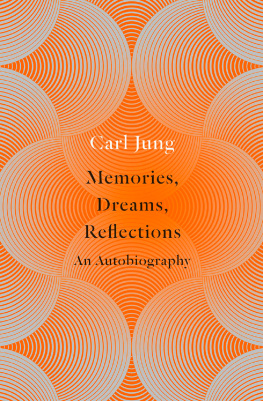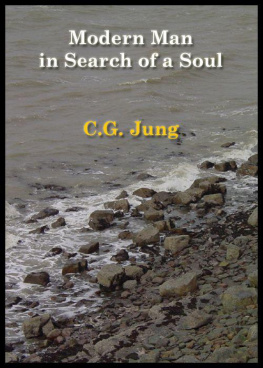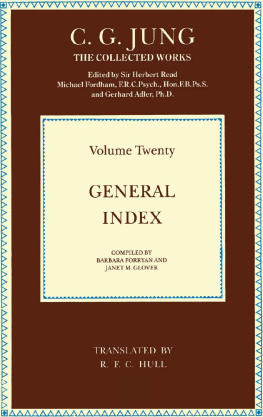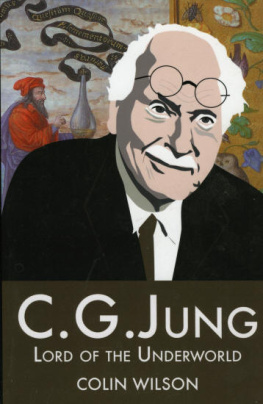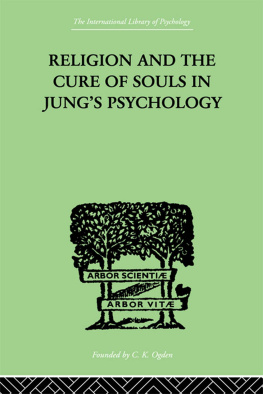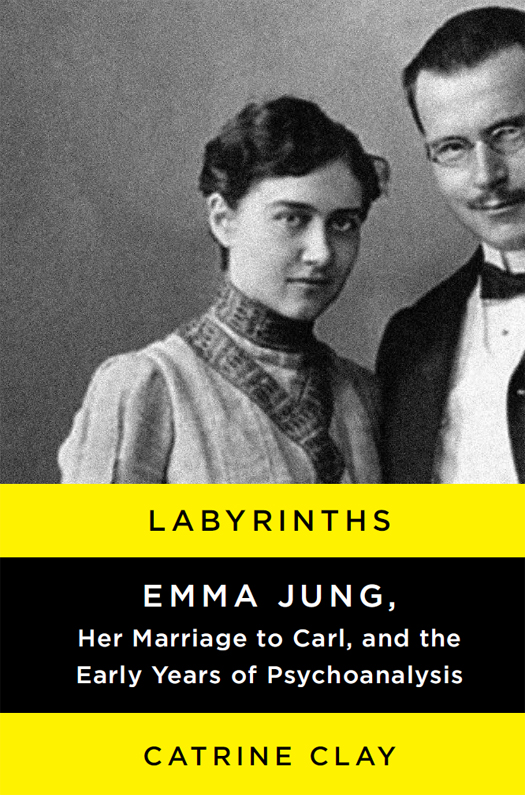For Gaby
Mini liebe Cousine und Helferin
Their [marriage] partners can easily lose themselves in such a labyrinthine nature, sometimes in a not very agreeable way, since their sole occupation then consists in tracking the other through all the twists and turns of his character.
Carl Jung
On Saturday 2 March 1907 Carl and Emma Jung arrived in Vienna for a five-day visit. They stayed at the Grand, the citys most fashionable hotel, just a few minutes walk from the Opera and the famous Ringstrasse. Accompanying them was Ludwig Binswanger, an assistant at the Burghlzli lunatic asylum in Zrich, where Carl Jung worked as a doctor and first assistant to the director Eugen Bleuler. At ten the next morning the threesome waited to be collected by Sigmund Freud, who had invited them to Sunday luncheon at his family home, a short walk away at 19 Berggasse. None had met the Herr Professor before, though Jung and Freud had been corresponding for over a year.
Emma Jung was twenty-four, attractive her wavy brown hair pinned up under a large hat and very wealthy. But although her outfit was expensive, with its long skirts and furs against the March cold, it was not showy, because Emma herself was not showy. Carl was strikingly good-looking in a Teutonic sort of way light brown hair, small moustache, dark eyes behind gold-rimmed spectacles, over six foot tall and powerfully built, with an imposing presence: a brilliant and ambitious young man just beginning to make his mark on the new and as yet not very scientific field of Psychoanalysis, of which Professor Freud, twenty years his senior, was already the acknowledged master. Anyone observing Emma and Carl Jung seated on the plush velvet canap in the elegant foyer of the Grand Hotel with its chandeliers, ornate galleries, steam-powered elevator and liveried footmen and porters would have seen a couple perfectly fitted to their surroundings: rich, handsome, young, and, by all appearances, happy.
But appearances can be deceptive. Some time before the Jungs left their home town of Zrich for Vienna, Emma had considered delivering her husband an ultimatum: either change his ways or she would divorce him a shocking and rare thing at the beginning of the twentieth century, and one utterly alien to the retiring character of Emma Jung. She felt lost in the labyrinth of her marriage to Carl, beset with problems. Life could not go on the way it was.
By 1907 the Jungs had been married for four years and had two young daughters Agathe, aged three, and Gretli, almost two who were being cared for back in Zrich by the childrens maid, helped by Carls mother and his unmarried sister Trudi. Four years might not be long, but it was long enough for Emma to discover the extent and complexity of her situation, though not long enough to know what to do about it. The problem was twofold: Carls outward manner, so confident he could come across as arrogant, concealed a very different and infinitely more complicated interior, one which constantly eluded Emma, however hard she tried to understand it. The second problem was no easier to solve: Carl was always flirting with other women, and they with him, provoking in Emma emotions she had never even known she possessed: storms of jealousy and fury followed by terrible feelings of self-doubt and recrimination. On top of all this Carl was extremely ambitious, working day and night at the asylum like a man possessed, driven by a conviction that he had a special understanding of the insane, because in many ways he was so like them. One way or another, it left almost no time for family life. Emma would spend hour upon hour in the Jungs apartment on the second floor of the Burghlzli asylum waiting for her husband to return.
There were further complicating factors. Emma came from a well-known family of wealthy industrialists, the Rauschenbachs of Schaffhausen, making her one of the richest heiresses in Switzerland. Carl on the other hand was the son of a poor pastor of the Swiss Protestant Reformed Church. In fact, he was in debt when he first met Emma to the tune of 3,000 Swiss francs, which at a time when a working man might earn thirty francs a week was a very large sum indeed. It was a humiliation for Carl, this poverty, because the Jung family was respected in his home town of Basel and most of them were not poor at all. But his father, for reasons best known to himself, chose to work in remote parishes which barely offered a living. So they were the poor relations and Carl hated it. On marrying Emma he inherited all his wifes money and possessions, and became not only debt-free but a man of independent means in his own right, and able to support his impoverished mother and sister. Uncertain whether the young, ambitious Herr Doktor Jung was not just a plain old-fashioned fortune-hunter, Emmas family allotted her an additional monthly allowance of her own. In the event of a divorce everything each partner brought to the marriage reverted to them a useful tool when delivering an ultimatum.
This is how things stood between the couple waiting for Herr Professor Freud in the foyer of the Grand Hotel in March 1907. One thing, however, was clear: Emma loved Carl fiercely and was prepared to fight to the bitter end to keep him. Carl, for his part, may or may not have married his wife for her money. But it certainly was not his only reason. The deeper reasons, true to his character, were infinitely more complicated.
The Jungs spring break was a useful distraction, travelling to three countries over a period of three weeks, just the two of them, and staying at the very best hotels. Their tour would take them to Budapest, then Fiume and Abbazia in northern Italy, but their first stop was Vienna, where Carl had already made arrangements. I shall be in Vienna next Saturday evening, and hope I may call upon you on Sunday morning at 10 oclock, Carl had written to the Hochverehrter highly esteemed Professor Freud on 26 February. My wife has relieved me of all obligations while I am in Vienna, he added, and I shall take leave, before my departure, to let you know at what hotel I am staying, so that you could if necessary send word there. Most truly yours, Dr Jung.
Who knows what Freud made of Jungs repeated use of the first-person pronoun, as though he were coming on his own, but he must have understood because when he arrived at the Grand Hotel that March morning, Freud was bearing some flowers for Frau Doktor Jung. As he presented them to her, with a formal bow, Emma saw a small dapper man with a neatly clipped moustache and beard, dressed in his winter best: a worsted overcoat in the English style; a suit, waistcoat, floppy bow tie, homburg hat, spats over boots, and a cane. His hair, inclined to be unruly, was combed down with his usual pomade supplied by the local barber he frequented every morning.
Originally the Jungs were meant to visit over Easter when Professor Freud had time to spare, but this was not possible for Carl and Emma who always spent Easter with their children. This presented a problem for Freud, who worked from eight in the morning till eight at night, apart from a break for the midday meal followed by a walk round the district for some air and a visit to the cigar shop. Unlike Carl Jung, Freud had not married into money and had to earn a living to support his large and extended family. But Sundays I am free, so I must ask you to arrange your visit to Vienna in such a way as to have a Sunday available for me, he had written to Jung on 21 February. If possible I would like to introduce you to a small circle of followers on a Wednesday evening. I further assume you will be willing to forgo the theatre on the few evenings you will be spending in Vienna, and instead to dine with me and my family and spend the rest of the evening with me. I am looking forward to your acceptance and the announcement of your arrival. Forgo the theatre? Jung had absolutely no intention of going. He hated the theatre. That was what Ludwig Binswanger was there for, to chaperone and entertain Emma. He himself wanted to spend every available minute with the Herr Professor.

